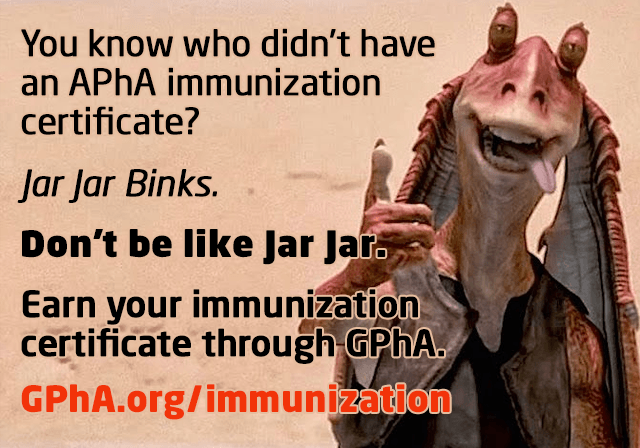Prostate cancer bacteria, slimming down your mice, coffee vs. Alzheimer’s, and more
21 Apr 2022
Posted by Andrew Kantor
Covid pneumonia is different
Here’s a surprising one: Pneumonia from Covid-19 is more likely to cause dementia than other kinds of pneumonia. Yet another way the virus is proving itself to be, well, weird.
Approximately 3% of patients with pneumonia associated with SARS-CoV-2 infection developed new-onset dementia, which was significantly higher than the rate seen with other pneumonias.
To be clear, the study (out of the University of Missouri) did not find that Covid raises the risk of dementia. Rather, that people with Covid-caused pneumonia were more likely to develop dementia than people with other-caused pneumonia.
NSAIDs and dem bones
Whether NSAIDs interfere with bone healing is still an open question. Some studies say yes, some say no. (A 2012 review even said, “Animal and in vitro studies present so conflicting data that even studies with identical parameters have opposing results.”)
The latest one, from an international group of researchers, sheds at least a little light — it focused on how NSAIDs affected one specific drug type: bisphosphonates.
What the researchers found was that NSAIDs didn’t increase fracture risk themselves, but they did seem to interfere with clodronate, which is designed to prevent fractures.
[T]he medications appeared to negate the bone-protective effects of the oral bisphosphonate, clodronate, on preventing osteoporotic fractures.
(Link above goes to the news article; click here for the study itself.)
One month till immunization training
The last spring session of the world’s hottest immunization certificate program — APhA’s Pharmacy-Based Immunization Delivery: A Certificate Program for Pharmacists — is coming up in just about a month: Sunday, May 22 from 8:00 am to 5:00 pm in GPhA’s World Headquarters in Sandy Springs.
If you think, “What’s the big deal about giving a shot?” you definitely need to attend. It’s not one of GPhA’s hottest courses for nothin’! (But the 20 hours of CE might be part of it.)
Head over to GPhA.org/immunization for the details and to register before the last spaces are taken!
A bacteria linked to prostate cancer
Could a bacteria be responsible for the aggressive part of “aggressive prostate cancer”? Possibly so — and it certainly seems to be linked to it.
That’s what British researchers found after doing genetic analyses on the urine and prostate tissue of more than 600 men. They found five species of bacteria — including three that had never been identified — that often appeared in the men with the most aggressive cancers.
Men who had one or more of the species in their urine, prostate, or tumour tissue were 2.6 times more likely to see their early stage cancer progress to advanced disease than men who did not.
Do the bacteria cause the cancer? Speed it up? If so, how? Or are they a byproduct of some other mechanism (e.g., an immune deficiency)? So many questions. But if you’re thinking, ‘Antibiotics to the rescue!’ keep in mind that targeting bacteria in the prostate isn’t that simple. Yet.
DEA to Post Office: We’re done
ICYMI, the DEA will no longer accept applications and renewals by paper mail — the “mail-in” option is gone.
This is the final rule (or, rather, the Final Rule) after the agency responded to some concerns from the National Association of Chain Drug Stores.
Abandoned storyline: Covid from minks
It seems there was a guest writer at work during the start of the pandemic: At least four people in Minnesota were infected with a variant? strain? version of the SARS-CoV-2 virus that came from mink — “the first known instance of possible animal-to-human transmission of the virus in the United States.”
They were two mink-farm workers, a taxidermist, and the taxidermist’s wife. And apparently there was going to be a conspiracy sub-plot, as “Government documents reveal CDC delayed disclosing likely COVID-19 animal spillover event.”
* “The Taxidermist’s Wife”: Soon to be a Lifetime Movie of the Week
Avenue for Alzheimer’s research
Any time you find something different about Alzheimer’s patients’ brains, it’s worth a second look. In this case it’s an enzyme called HDAC9.
Medical College of Georgia neuroscientists found that HDAC9 is present in healthy neurons and declines with age — but it declines more in Alzheimer’s patients.
Hmm.
HDAC9 expression decreases before Alzheimer’s telltale amyloid deposits start appearing, and they know it helps neurons communicate (“synaptic plasticity”), so it seems to be an avenue worth exploring. Well, a highway: “Downstream” of HDAC9 (and the genes it affects) are about 380 factors, any of which might be a key to the disease.
Fat-stopping supplement
Got fat mice? An analog of vitamin E might help them slim down.
Japanese researchers, looking into potential treatments for obesity and oxidative stress, considered vitamin E and its variants, which already showed some potential to help. Good news: They found that giving tocotrienols to mice on a high-fat diet meant they didn’t gain weight like the controls did. Even better, those tocotrienols…
… lowered the accumulation of white adipose tissue around the kidneys and protected the liver against damage from the [high fat diet]. Moreover, T3s [tocotrienols] helped reduce levels of low-density lipoprotein, or “bad cholesterol” in the blood without affecting levels of high-density lipoprotein.
The interesting twist: While the headline refers to vitamin E, the study actually involved tocotrienols, not the tocopherols that make up most vitamin E supplements.
This is your brain on coffee
It’s been weeks since we had a story about how amazing coffee is, and for that we apologize. How about this: It might help prevent Alzheimer’s.
Aussie researchers (plus one American, presumably a bodyguard) found that … well, their paper’s title says it all: “Higher Coffee Consumption Is Associated With Slower Cognitive Decline and Less Cerebral Aβ-Amyloid Accumulation Over 126 Months.”
After following 227 older people for 10 years — including questionnaires, MRIs, and PET scans — the neuroscientists found that coffee drinkers had less decline in their executive function and attention, and were less likely to go from “cognitively normal” to “mild cognitive impairment” or worse.
“Our estimates suggest that […] increasing intake from one to two cups per day could provide up to 8% decrease in executive function decline over an 18-month period, and up to 5% decrease in cerebral Aβ-amyloid accumulation over the same time period.”
Choose your own illustration from our stock-photo search: “old person holding mug”:




